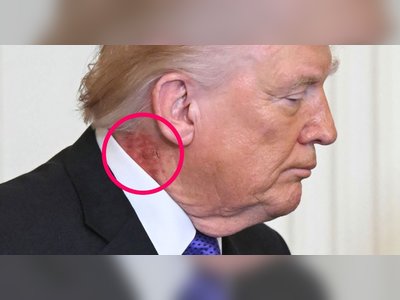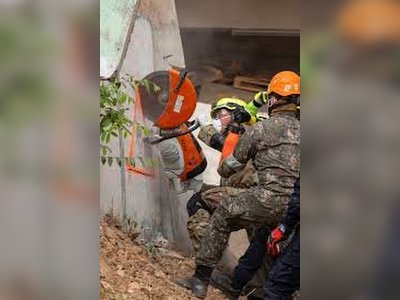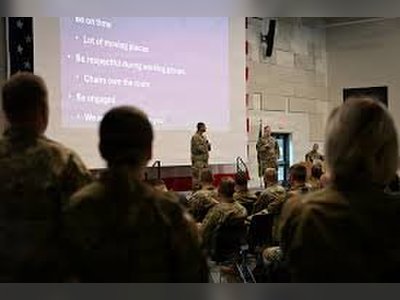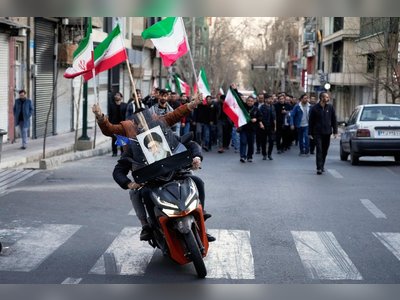
Truce Collapse Between Rebel Groups in Colombia Results in Over 80 Deaths
Escalating Violence in North-East Colombia Forces Thousands to Flee as Rebel Conflict Intensifies
The north-eastern region of Colombia, bordering Venezuela, has witnessed a significant surge in violence after the breakdown of a tenuous truce between rebel groups fighting for control over one of the country’s major cocaine-producing zones.
At least 80 individuals have lost their lives, and approximately 5,000 have been forced to evacuate their homes due to escalating hostilities between the National Liberation Army (ELN) and dissident factions of the Revolutionary Armed Forces of Colombia (FARC).
Regional authorities, including the governor of Norte de Santander, William Villamizar, have confirmed that schools have ceased operations indefinitely to serve as emergency shelters for displaced families.
Reports from Colombia’s ombudsman office indicate numerous civilian injuries and the abduction of 20 individuals, including ten women.
Richar Claro, the mayor of the heavily affected municipality of Tibú, stated that more than 3,000 residents have been displaced there alone.
The conflict has left many families grieving, with some unable to conduct burials due to ongoing violence in affected areas.
This recent upheaval marks one of the most severe conflicts since Colombia’s first leftist president, Gustavo Petro, assumed office in 2022 on a platform promising 'total peace' for the nation.
However, the recent violence follows a cessation of Petro's negotiations with the ELN, prompted by accusations against the group for the killing of five rival faction members.
Among the fatalities were a prominent community leader and seven ex-rebel fighters who had previously demobilized following a 2016 peace agreement with the FARC—an accord that ended 60 years of conflict, resulting in 450,000 deaths and massive internal displacement.
Despite the peace agreement, government officials and analysts note the state’s failure to reassert order in regions formerly dominated by FARC, leading to a power vacuum exploited by groups like the ELN and dissident FARC factions to control the lucrative cocaine trade.
This region, known for its significant coca cultivation, remains a target of ongoing violence partially attributed to its crucial position near the Venezuelan border.
Gerson Arias, a researcher at the Bogotá-based Ideas for Peace Foundation, suggests that underlying tensions between these factions have been longstanding, with occasional skirmishes reported in the area.
An audio message, reportedly from a commander of the FARC's 33rd Front, Andrey Avendaño, surfaced, allegedly declaring war against the ELN: 'A war was imposed on us, and we have to fight it with those who imposed it on us.'
In response to the escalating crisis, Colombia's military announced the deployment of 300 troops to the border area aimed at restoring order.
Meanwhile, President Petro’s strategy of negotiating with armed groups, instead of military engagement, has faced challenges, with the conflict in Catatumbo further complicating prospects for peace talks, according to insights from the Ideas for Peace Foundation.
At least 80 individuals have lost their lives, and approximately 5,000 have been forced to evacuate their homes due to escalating hostilities between the National Liberation Army (ELN) and dissident factions of the Revolutionary Armed Forces of Colombia (FARC).
Regional authorities, including the governor of Norte de Santander, William Villamizar, have confirmed that schools have ceased operations indefinitely to serve as emergency shelters for displaced families.
Reports from Colombia’s ombudsman office indicate numerous civilian injuries and the abduction of 20 individuals, including ten women.
Richar Claro, the mayor of the heavily affected municipality of Tibú, stated that more than 3,000 residents have been displaced there alone.
The conflict has left many families grieving, with some unable to conduct burials due to ongoing violence in affected areas.
This recent upheaval marks one of the most severe conflicts since Colombia’s first leftist president, Gustavo Petro, assumed office in 2022 on a platform promising 'total peace' for the nation.
However, the recent violence follows a cessation of Petro's negotiations with the ELN, prompted by accusations against the group for the killing of five rival faction members.
Among the fatalities were a prominent community leader and seven ex-rebel fighters who had previously demobilized following a 2016 peace agreement with the FARC—an accord that ended 60 years of conflict, resulting in 450,000 deaths and massive internal displacement.
Despite the peace agreement, government officials and analysts note the state’s failure to reassert order in regions formerly dominated by FARC, leading to a power vacuum exploited by groups like the ELN and dissident FARC factions to control the lucrative cocaine trade.
This region, known for its significant coca cultivation, remains a target of ongoing violence partially attributed to its crucial position near the Venezuelan border.
Gerson Arias, a researcher at the Bogotá-based Ideas for Peace Foundation, suggests that underlying tensions between these factions have been longstanding, with occasional skirmishes reported in the area.
An audio message, reportedly from a commander of the FARC's 33rd Front, Andrey Avendaño, surfaced, allegedly declaring war against the ELN: 'A war was imposed on us, and we have to fight it with those who imposed it on us.'
In response to the escalating crisis, Colombia's military announced the deployment of 300 troops to the border area aimed at restoring order.
Meanwhile, President Petro’s strategy of negotiating with armed groups, instead of military engagement, has faced challenges, with the conflict in Catatumbo further complicating prospects for peace talks, according to insights from the Ideas for Peace Foundation.












